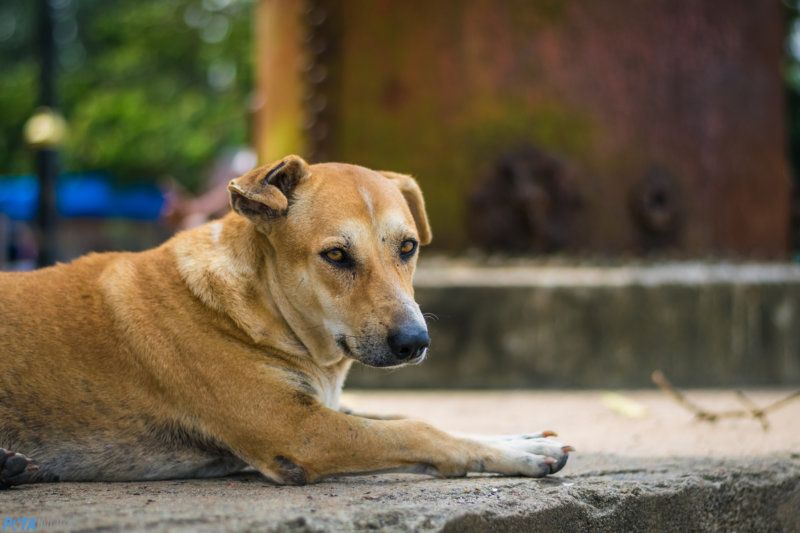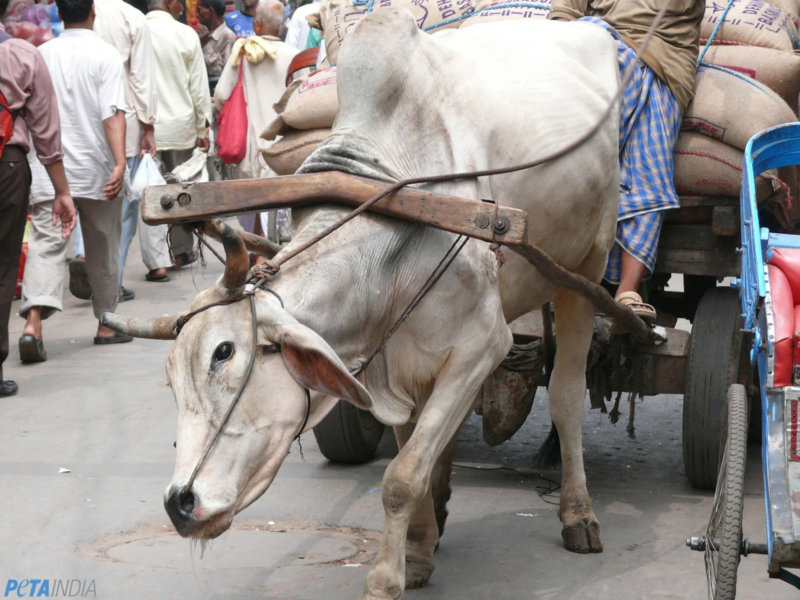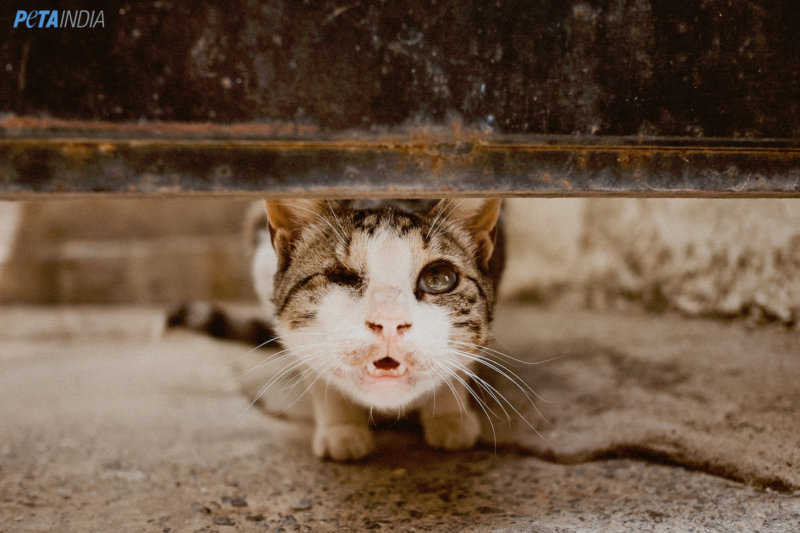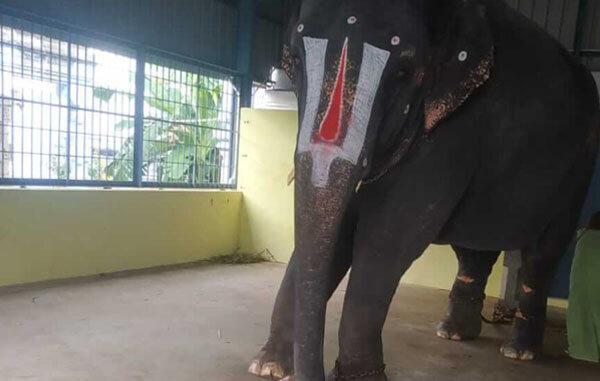Delhi’s Air Pollution Is Hazardous for Animals, Too! PETA India Issues Urgent Advisory
As air pollution in Delhi has reached “severe” and even “severe plus” levels, as per the National Air Quality Index, PETA India is offering life-saving tips on caring for companion, working, and “community” animals. Prevent severe diseases like asthma and bronchitis by following these precautions:
For Companion Animals
- Keep them indoors: Keep companion animals indoors with windows and doors closed when possible.
- Filter the air: Use air conditioning or an air purifier to filter the air in your home.
- Avoid long walks: Dogs should be taken outside only for short walks during this time, and prolonged exercise should be avoided as much as possible.
- Keep them hydrated: Make sure your companion animals drink enough water. Keep their bowls filled at all times.
For Working Animals
- Avoid dry food: Concentrate feeds should be dampened to reduce dust inhalation. This is particularly important when nosebags are used.
- Support PETA India’s Delhi Mechanisation Project: This programme seeks to rehabilitate overworked and abused working animals – including bullocks, donkeys, ponies, and horses – after replacing them with e-rickshaws and to provide their poor owners and their families with better opportunities.
For Community Animals
Stay alert and save a life: Keep an eye on all animals you see outdoors. Make sure that they have adequate water and shelter. If you find an animal in distress, contact PETA India’s emergency helpline on (0) 98201 22602 for advice or a referral. Don’t leave the animal’s side before help arrives.
As it may not be possible to keep animals indoors at all times, look for these early symptoms of poor health and take the affected animal to the nearest veterinary service provider:
- Laboured or open-mouthed breathing
- Vomiting or loss of appetite
- Unusual or excessive coughing or sneezing
- Swelling or inflammation of the eyes, mouth, or skin
- Any discharge from the eyes or nose
- Weakness or lethargy
- Uncoordinated walking or inability to stand
- Increased salivation
High air pollution can cause animals to suffer greatly from severe respiratory problems. Studies show that domesticated, “indoor” animals have an increased risk of tumours when exposed to polluted air over an extended period of time, and the same is no doubt true of animals who live and sleep outdoors, like monkeys and community cats and dogs. Working animals such as bullocks, donkeys, horses, camels, and other species are highly affected by air pollution, since they’re on the road throughout the day, inhaling the polluted air emitted from the vehicles that surround them. Particulate matter in the air has been linked to cardiac arrest in animals, and veterinarians sometimes attribute those deaths to the effects of air pollution.











